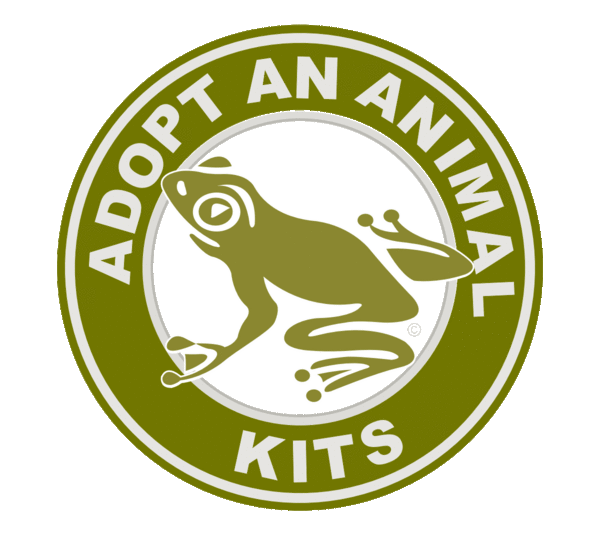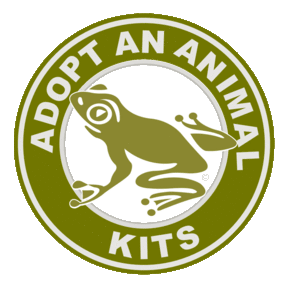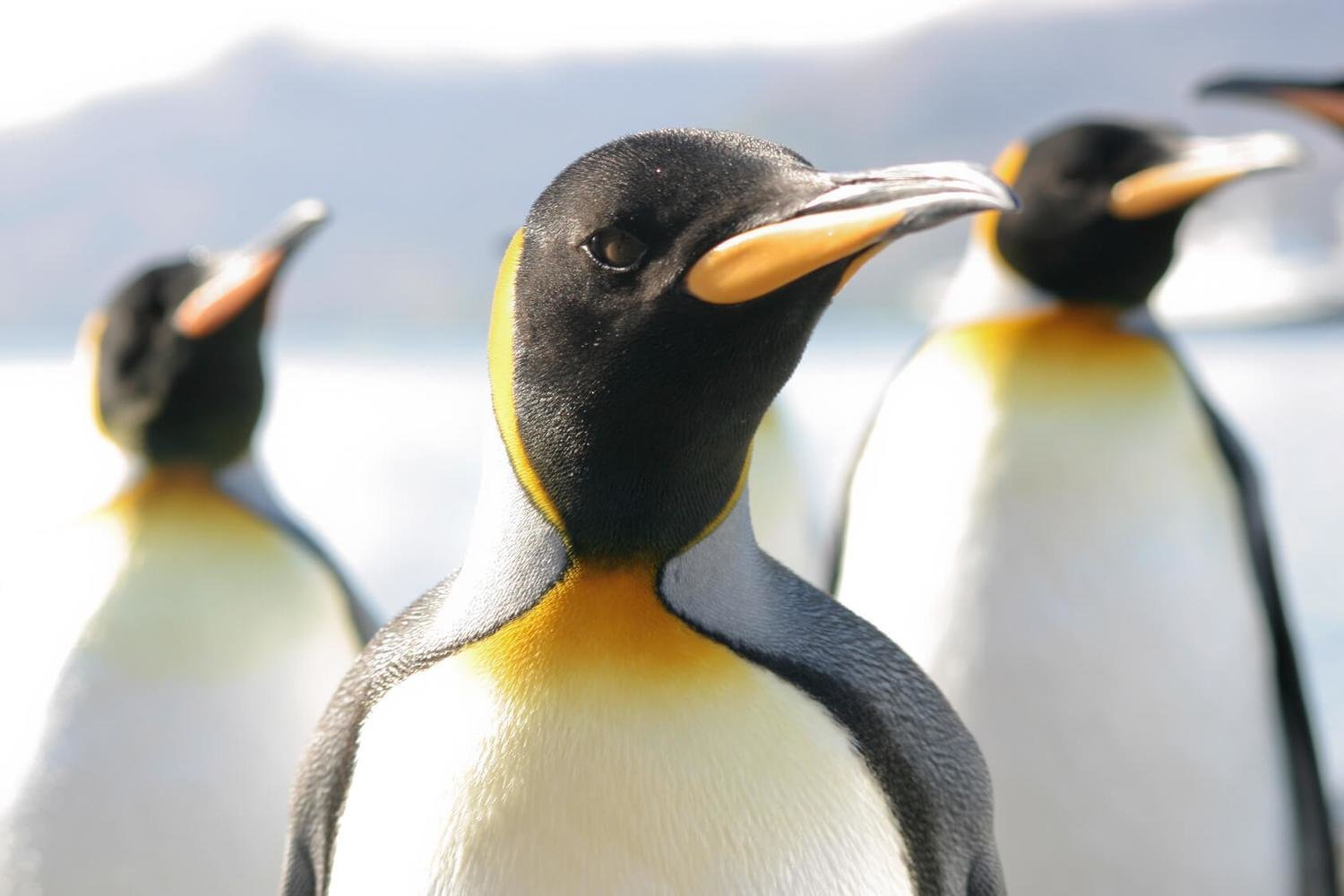

Adopt An Animal Kits
Adopt An Animal symbolically. Your Adopt An Animal Kit comes in a Deluxe Folder and includes: Glossy Photo of Your Adopted Animal; Adopt An Animal Adoption Certificate; Fact Sheet About Your Adopted Animal; Help Animals Info Cards Packed With Information On Animal Issues & How You Can Help Animals And The Environment. Adopt An Animal for Yourself or as a Gift.
Adopt A Penguin
Adopt A Penguin
Your Adopt A Penguin Kit comes in a Deluxe Folder and includes:
- Glossy Photo Of Your Adopted Penguin
- Adopt A Penguin Adoption Certificate
- Fact Sheet About Your Adopted Penguin
- Help Animals Info Cards Packed With Information On Animal Issues & How You Can Help Animals And The Environment
Adopt A Penguin Kits make great gifts and can be sent directly to the recipient. Simply supply the recipient's name and mailing address as shipping information. We'll even include a letter stating the Adopt An Animal Kit is from you.
Adopt An Animal symbolic adoption is a one time fee. Adopt an animal for yourself or order an Adopt An Animal Kit as a gift. Help make a difference for animals - Adopt An Animal Today!
Adopt A Penguin
Penguins are flightless sea birds. They can be many different colors from the chest up. Most species have black backs and white fronts. Penguins are able to control their body temperature on land by facing either their black back or white front to the sun. This coloration also camouflages them in the water. They have a thick layer of blubber that helps keep them warm.
There are 17 penguin species, varying greatly in size. The largest is the emperor penguin at 4 feet tall and about 65 to 90 pounds. The smallest is the little penguin, also known as the blue or fairy penguin, which weighs 2 pounds.
Penguins can live up to 15 to 20 years in the wild. They are found on every continent in the southern hemisphere, from the Antarctic to the Galapagos Islands.
Penguins are carnivores and mostly eat krill, a tiny shrimp-like animal, and other fish. Their sharp, spine-like teeth allow them to catch fish up to 10 inches long, which they swallow head first.
With compact, streamlined bodies, penguins can swim an average of 2.5 to 5 miles per hour – using their wings as paddles – with some species swimming as fast as 7.5 miles per hour. They also "toboggan," laying on their belly and pushing themselves along the ice with their flippers and feet. Most penguin species spend several hours a day preening and waterproofing their feathers with an oil produced from a gland located above their tail feathers. Feathers are important to keep penguins warm and to keep cold water from touching their skin.
Most penguin species gather in colonies in areas free from land predators during nesting. Many penguins build a nest of rocks, sticks or grass where one or two eggs are laid. Because penguins only eat in the ocean, they must fast while mating, incubating eggs and guarding chicks. The male and female usually take turns tending to the eggs and raising the chicks while the other mate returns to the ocean to eat. Adult feathers replace a chick’s down at about two to four months. Once the chick has adult feathers, it is ready to swim and hunt on its own.
Penguins are superbly adapted to an aquatic life. Their wings have become flippers, useless for flight in the air. In the water, however, penguins are astonishingly agile. Within the smooth plumage a layer of air is preserved, ensuring buoyancy. The air layer also helps insulate the birds in cold waters. On land, penguins use their tails and wings to maintain balance for their upright stance.
All penguins have a white underside and a dark (mostly black) upperside. This is for camouflage. A predator looking up from below (such as an orca or a leopard seal) has difficulty distinguishing between a white penguin belly and the reflective water surface. The dark plumage on their backs camouflages them from above.
The small penguins do not usually dive deep; they catch their prey near the surface in dives that normally last only one or two minutes. Larger penguins can dive deep in case of need. Dives of the large Emperor Penguin have been recorded which reach a depth of 1,870 feet and last up to 20 minutes.
Penguins either waddle on their feet or slide on their bellies across the snow, a movement called "tobogganing", which allows them to conserve energy and move relatively fast at the same time.
Penguins have an excellent sense of hearing. Their eyes are adapted for underwater vision, and are their primary means of locating prey and avoiding predators; in air, conversely, they are nearsighted. Their sense of smell has not been researched so far.
They are able to drink salt water safely because their supraorbital gland filters excess salt from the bloodstream. The salt is excreted in a concentrated fluid from the nasal passages.
Penguins have no external genitalia.
THREATS TO PENGUINS
Penguins living more than 60 degrees south of the equator are protected from hunting by the 1959 Antarctic Treaty. Penguins are currently threatened by human activity. Threats include oil spills, human exploitation for guano and food, entanglement in fishing gear, human encroachment, over-fishing of food sources and introduced predators such as dogs. The Galapagos penguin is the only species listed as endangered under the U.S. Endangered Species Act.
Penguins are victims of the animal entertainment industry. While zoos and aquariums may appear to be educational and conservation-oriented, most are designed with the needs and desires of the visitors in mind, not the needs of the animals. Many animals in zoos and aquariums exhibit abnormal behavior as a result of being deprived of their natural environments and social structures. Some zoos and aquariums do rescue some animals and work to save endangered species, but most animals in zoos were either captured from the wild or bred in captivity for the purpose of public display, not species protection. The vast majority of captive-bred animals will never be returned to the wild. When the facility breeds too many animals they become "surplus" and often are sold to laboratories, traveling shows, shooting ranches, or to private individuals who may be unqualified to care for them.
Adopt Adopt An Animal Kits
Our Adopt An Animal Kits are educational packets that allow you to symbolically adopt a favorite animal species and contain a variety of information promoting the protection of wildlife, companion animals, farm animals and the environment. By purchasing a symbolic adoption kit you will receive a packet of information regarding daily choices you can make to help the earth and animals.
Your Adopt An Animal Kit comes in a Deluxe Folder and includes:
Glossy Photo Of Your Adopted AnimalAdopt An Animal Adoption CertificateFact Sheet About Your Adopted AnimalHelp Animals Info Cards Packed With Information On Animal Issues & How You Can Help Animals And The Environment.
Adopt an animal for yourself or order an Adopt An Animal Kit as a gift. Symbolically adopting an animal is the perfect gift for a loved one who loves animals, and helps to promote the compassionate treatment of animals and respect for the environment by offering information on how to help the earth and animals. Adopt An Animal Kits can be sent directly to the recipient: simply supply the recipient's name and mailing address as shipping information. We'll even include a letter stating the Adopt An Animal Kit is from you.
Adopt An Animal Kits is a small, independent business not affiliated with any other business, non profit or charitable organization.
Fast Shipping!
Shipping time for Adopt An Animal Kits averages 2 to 4 business days - USA. Allow additional time for Adopt An Animal Kits orders outside the USA. Your Adopt An Animal Packet will arrive approximately 2 to 4 business days following shipping date. Shipping for Adopt An Animal Kits within the USA is by U.S.P.S. Priority Mail.
INTERNATIONAL ORDERS: Average shipping time for Adopt An Animal Kits outside of the USA is 5 to 14 business days, including Canada. International Shipping & Handling for Adopt An Animal Kits is by U.S.P.S. First Class Mail.
About Us

Adopt An Animal Kits, LLC
The world is teaming with an amazing diversity of animals. Some species are beautiful, others bizarre — but they all are important to the ecosystem and deserve our respect, compassion and protection. Unfortunately, many animal species are declining at a rapid rate as a result of irresponsible human activities. Habitat destruction, pollution, hunting, poor agricultural practices and changes in climate are among the threats faced by wildlife and domestic animals.
Adopt An Animal Kits, LLC is a small business who believes in promoting the advancement of compassionate living by educating the public about animal and environmental issues and what individuals can do to prevent cruelty to animals. Through our work, we strive to eliminate the prejudice of animals (speciesism) through educational efforts. Our business produces printed and printable educational materials available to individuals with an interest in earth and animal topics. Our Adopt An Animal Kits seek to educate and influence individuals on environmental and animal issues. The purchase of an Adopt An Animal Kit allows you to symbolically adopt your, or your loved one's, favorite animal species while promoting the protection of wildlife, companion animals, farm animals and the environment. Rather than adopting an indivdual animal, you are symbolicly adopting the species. Each kit contains a collection of information on how you or your loved one can make daily choices to help animals and the environment.
Our website provides an information portal regarding these issues. Information posted on the site is free of charge and available to anyone with an interest. Our printed and printable materials are available to individuals with an interest in earth and animal issues. We produce hundreds of fact sheets, flyers, and digital materials regarding environmental and animal issues. Most materials are available at no cost to anyone with an interest.
Adopt An Animal Kits, LLC is not a charitable or nonprofit organization.

